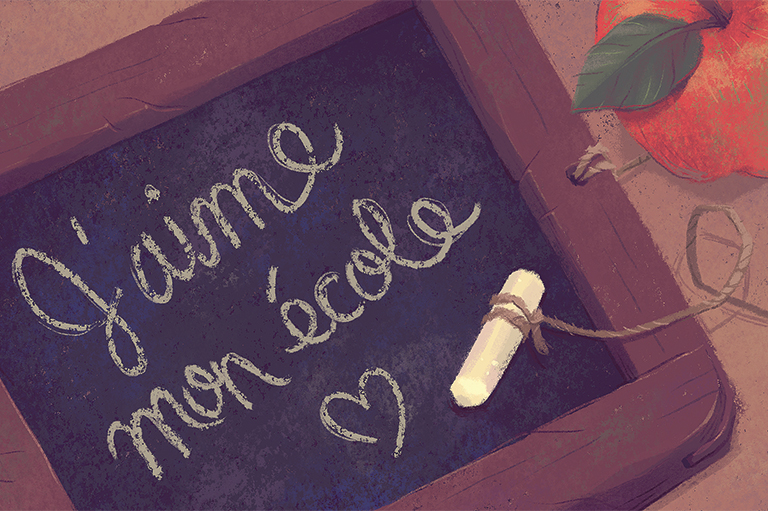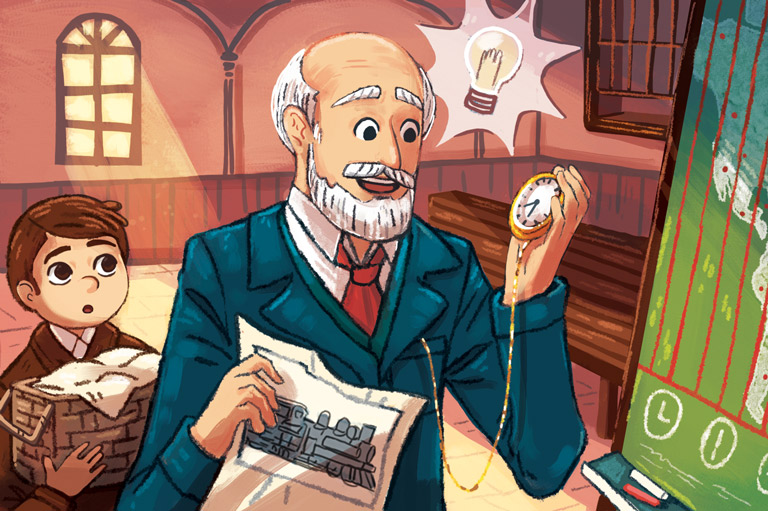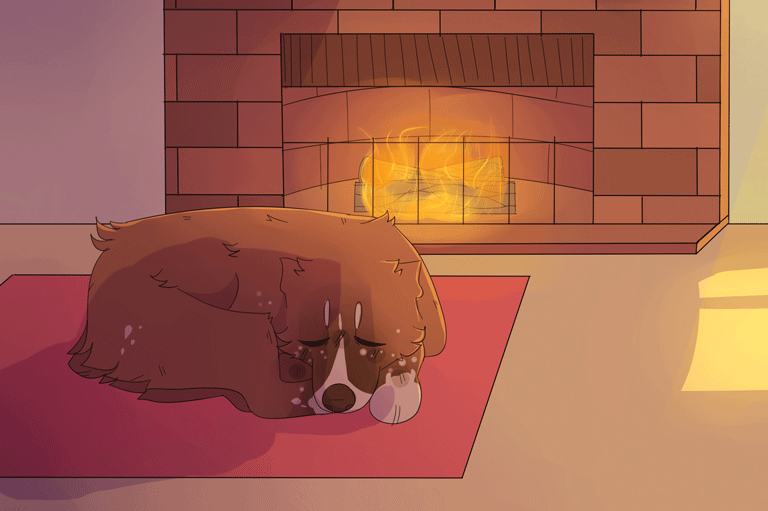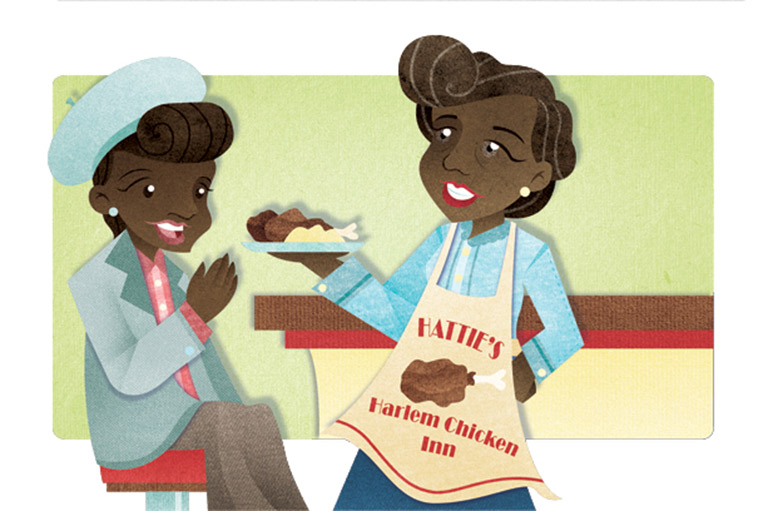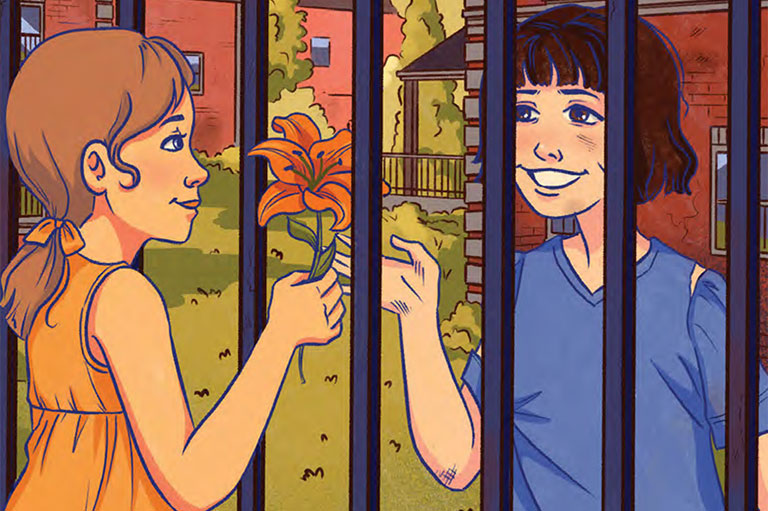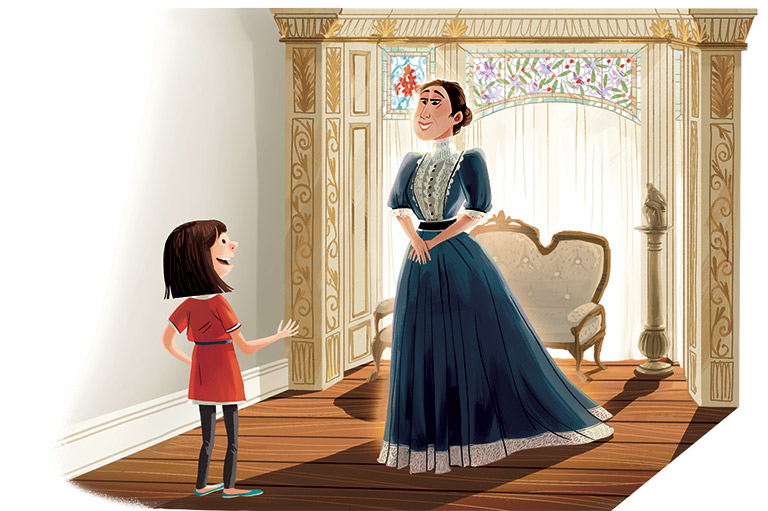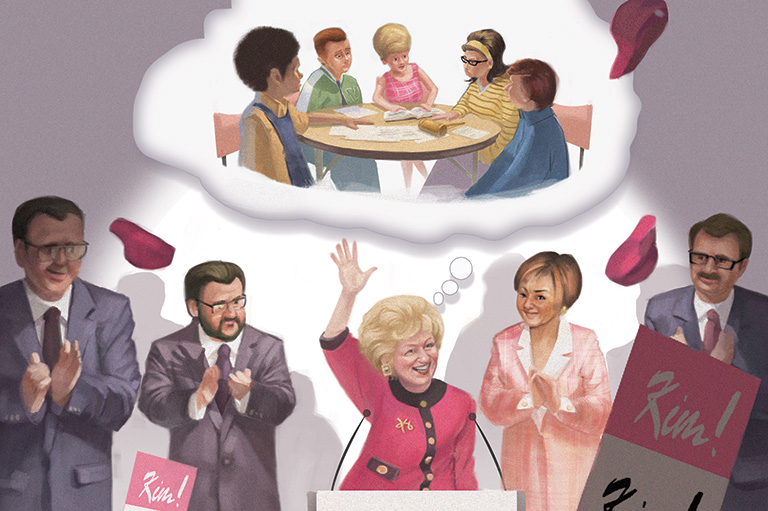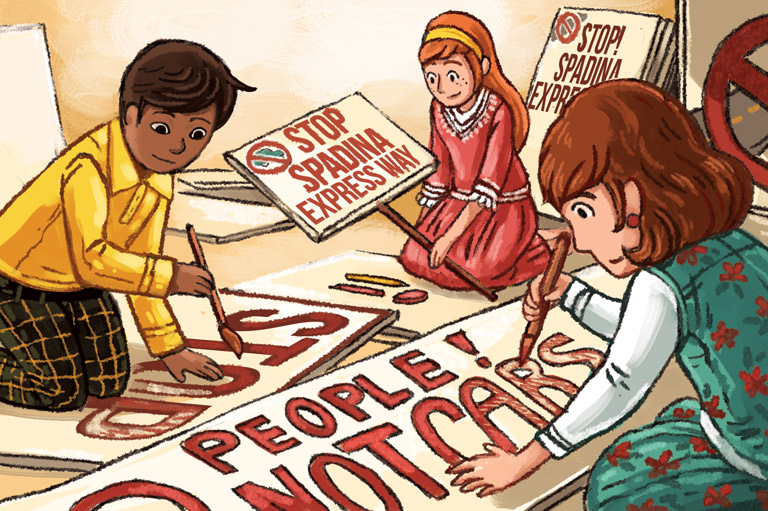Del's Truck
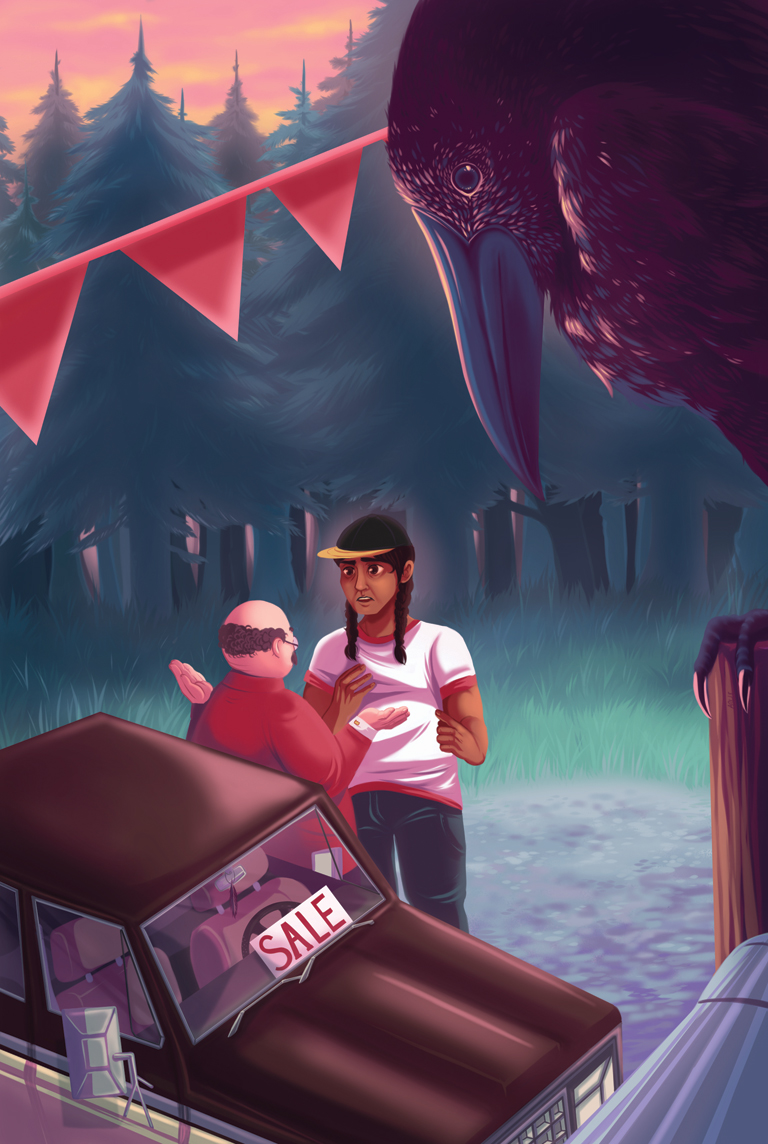
Del’s truck was a beauty. It was a Ford 150 LTX extended cab, super camper special, vintage 1979. Brown with a broad yellow stripe down the side. Del lovingly referred to it as the Nanaimo Bar. He drove it all over and used it for hunting and fishing, and when the winter came he hauled firewood.
He left the keys in it and anyone who needed wheels could borrow it. It would come back with a little more or a little less gas. Del liked sharing his truck; it made him a rich man.
One day, Del was in the local cafe. After paying his bill, he got up and looked outside. His truck wasn’t there. He thought maybe Milly had to go to the grocery store or Big Bob was hauling garbage. Not too concerned, he headed out the door and started walking.
As Del entered town, he saw a raven swoop down onto a power line. He nodded to the bird. Farther along, he smiled and said hi to several friends. And then came the shock. There was his truck sitting on a used car sales lot!
The lot was called Sweet Generous Deals. It was new in town. It had a group of vehicles that had seen better days. Seeing his truck there with a sticker price on its windshield caused Del some surprise and concern. As he was checking to make sure it was his beloved Nanaimo Bar, a voice came from behind him.
“She’s a beauty, eh?” Del turned around to see a short guy with a moustache and a fuzzy fringe of hair around a bald head.
“Pleased to meet you. My name is Reg Couronne.”
“Mr. Couronne, my name is Del and this here is my truck,” Del replied.
“Well, I am glad you can see yourself behind the wheel of this fine truck, Del —” said Reg.
“No, no. That’s not what I mean,” Del said. “I mean this is my truck. Someone must have brought it here to play a prank on me.”
Reg shook his head. “Actually, I found this truck with the keys in it. The law might say that the person who left it that way was simply inviting someone else to take it. Which I did, and now it belongs to me. Instead of leaving it uncared for, I have a better use for the truck. I aim to sell it and make me some money.”
Del started to laugh, a deep belly laugh that travelled his whole frame. “Tell me who put you up to this. I love a good joke.” Reg looked stern. “Mr. Del, I don’t believe I was being funny.”
Del stopped laughing. “That truck is mine. I can prove it.”
“Do you have ownership papers, or a sales invoice or insurance forms?” Reg asked.
“Well, no . . . See, the truck was my Dad’s and he gave it to me. We didn’t bother with any papers. I don’t insure the truck because that would cost more than it’s worth. Besides, I only drive around here on the back roads.”
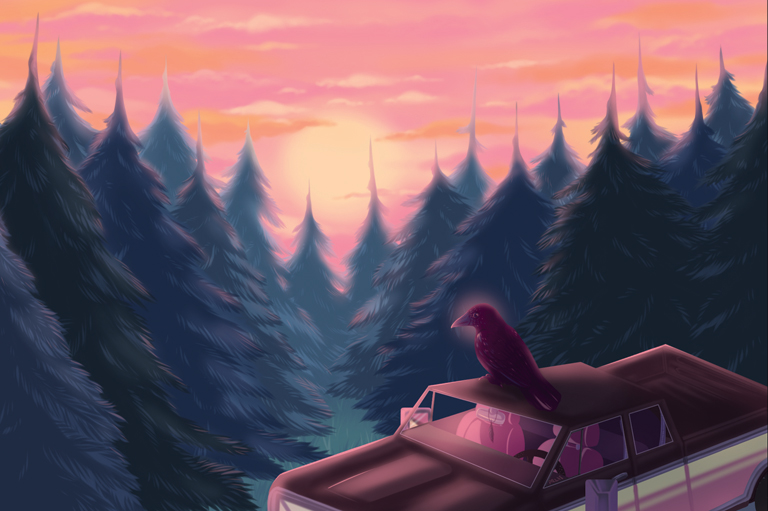
“Ah, then you have no proof of ownership,” Reg said with a greedy smile. “Nothing a judge would point to and say ‘Oh, yes; this truck is Del’s.’”
Del was getting annoyed now. “I may not have any papers, but I can describe this truck down to every mark and scrape. That dent on the bumper happened when I hit a deer on the logging road out near Port Renfrew. That stain on the seat was when Milly’s kids spilled ketchup from their fries. And that fishing rod hanging in the rack is my brother Bill’s.
“I know that the right-hand mirror needs a bit of duct tape to hold it up. The engine makes a knocking sound going uphill. Heck, I can sing you all the songs on the cassettes in the glove box. How about ‘Your Cheatin’ Heart,’ by Hank Williams?”
He took a deep breath but Reg cut him off. “Please, Mr. Del! I don’t want to hear you sing. In fact, I have a tin ear — I couldn’t tell one song from the other.”
Del was getting desperate. “I can get some of my family and friends over here to back me up. They’ll tell you the truck is mine. Heck, they drive it more than I do.”
“Honestly, it doesn’t matter how many people tell me you own the truck,” Reg replied. “The fact is that I have the truck. In fact, you said everyone drives it, so how can it be yours alone? I, on the other hand, have sole and exclusive possession of this truck at this moment. And you can bet I won’t leave the keys in it unguarded.”
“This is crazy!” Del sputtered. “How can you claim ownership when the truck is mine and has been in my family for more than twenty years?”
“That’s the law,” Reg said with a shrug. “You have no proof of ownership. And how do I know that anyone else who drives it won’t come by and claim to own it?”
He grinned. “But hey — I’m a businessman. You can buy the truck or lease it for a monthly fee. If you lease, you can use it just like you own it. Of course, you can’t change the truck in any way — no big tires or new paint jobs. You can still use it to hunt and fish and move firewood, but you can’t haul bricks in it. At the end of the lease, you can return it and get a new vehicle. That’s why we’re called Sweet Generous Deals!”
Del couldn’t believe his ears. “How can you lease me a truck you don’t own?” he yelled. “That truck is mine and I’m going to prove you stole it!” But Reg Couronne was gone, talking to a young couple looking at a minivan.
Del scrunched up his eyes, hoping he would open them and find himself back at the cafe with his truck parked outside. No such luck. All he saw was Couronne, his frizzy hair in a ring around his head.
Del walked slowly away from the lot. The sound of the raven cawing over the valley followed him.
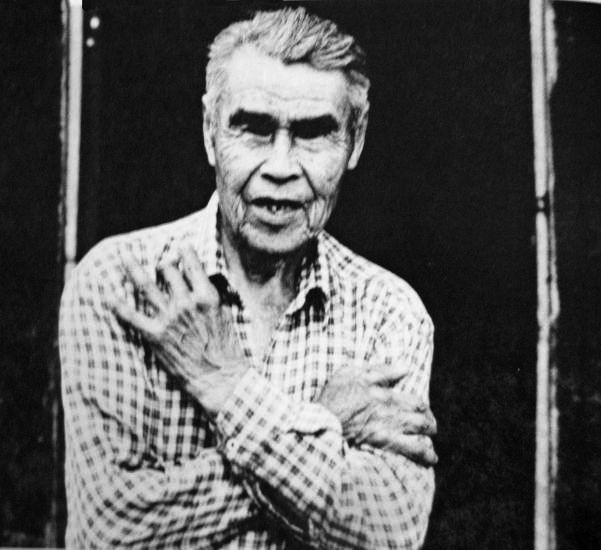
The author of this story, Guuduniia (pronounced GUUD-N-eye) LaBoucan, is a Cree biologist, lawyer and writer who lives in British Columbia. She based “Del’s Truck” on a famous case in B.C. about First Nations land rights, known as Delgamuukw.
It was named for the Gitxsan Chief, Earl Muldoe Delgamuukw, who brought it to court along with the Wet’suwet’en Chief Dini ze’ Gisday’wa (Alfred Joseph).
The two nations argued their people had never given up a huge chunk of land in northwestern B.C. where the government wanted to allow logging. In 1991, a judge ruled Gitxsan and Wet’suwet’en ownership disappeared when B.C. became part of Canada. (The judge also said he didn’t want to listen to traditional songs about the two nations’ connection with their lands because he had “a tin ear.”)
A new ruling in 1997 settled some questions but not others. It said Indigenous people did have rights over their lands, and that governments had to work with them. It also set out rules a nation had to follow to prove a territory belonged to it. In this story, Del is short for Delgamuukw and Reg Couronne represents the Crown — a term that includes the Canadian government, with the Queen at its head. And the raven is a well-known trickster figure among many West Coast Indigenous peoples.
— Nancy Payne
Themes associated with this article
You might also like...
Kayak: Canada’s History Magazine for Kids — 3 digital issues per year for as low as $13.99. Tariff-exempt!

